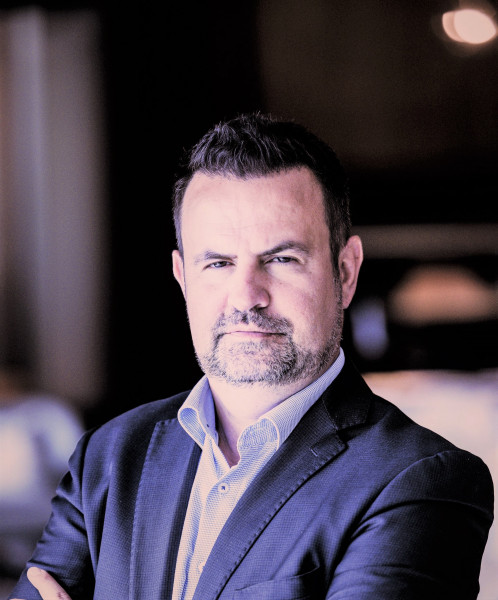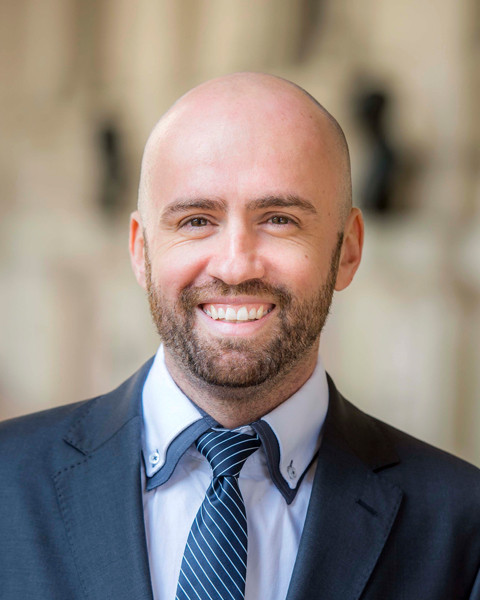



Life brings a new crisis each year, in 2023, the business sector has to cope with a difficult economic outlook as well. Besides sustaining liquidity and stability, investment pressures, adopting new innovations and technologies, and the green transition pose challenges that only actors with a conscious long-term perspective will be able to overcome. Sustainability has become a strategic question, but how can we translate the new strategic direction to the tasks of the present, how can we make financial sense of it, and what will be the net present value of a green project or company? What does the world of business have to prepare for, and what EU and government interventions can the realisation of a green economy bring about? Will there be EU support for greening or is it better if everyone starts thinking about other forms of funding? What steps will the largest companies, the determining industry representatives take now?
09:00 - 09:05
09:05 - 09:25
EU tender possibilities: an accelerator for green projects and a sustainable economy
Speaker: Bernadett Petri, Közigazgatási és Területfejlesztési Minisztérium közvetlen uniós források felhasználásának koordinációjáért felelős miniszteri biztos, ügyvezető igazgató Magyar Fejlesztésösztönző Iroda (MFOI)
09:30 - 09:50
Hungary on the way to a green transition
Speaker: Nándor Csepreghy, State Secretary, Deputy Minister, Ministry of Construction and Transport
09:50 - 10:00
The green transition has reached everyone – Is the economy ready?
Speaker: Gergely Pókos, Managing Director, OTP Bank Zöld Program Igazgatóság
10:00 - 10:45
Greening in a difficult economic situation – Roundtable discussion with company directors
Moderator: Zoltán Bán, CEO, Net Média (Portfolio Group)
Conversation participants:
We need astonishing amounts of money to realise the green transition that the economy can raise only through sacrifices or by reassigning funds. Now green projects and a green corporate operation debit the cost side, but the price of a company's failure to operate sustainably will be even higher later. What transformation will climate change bring to financial markets? What new risks should be priced in? What bank lending strategies can we prepare for? What do banks and companies gain by investing all available resources in greening?
11:10 - 11:25
11:30 - 11:45
New sourcing for green projects: EU tender tricks
Speaker: András Bebes, főosztályvezető, Stratégiai és elemzési főosztály, Államadósság Kezelő Központ Zrt.
11:45 - 12:30
Financing strategies – What do the banks give, what do companies gain?
Moderator: Ákos Schmidt, ügyvezető igazgató, Credit Management Group
Conversation participants:
There is no need to explain the theory of ESG, but the deeper we dig, the trickier problems the practical implementation of ESG poses. The largest companies have to cope with regulation, investor pressure, and funding compliance, while the SME sector is already facing the prospect of having no one to supply or service if it does not take ESG practices seriously. How are domestic large and smaller companies doing in complying with acronyms such as ESG, CSRD, NFRD or the EU Taxonomy? How does our data-driven world help in measuring Scope 3 emissions? Is it going to be possible to realise net zero commitments without sugar-coating data and numbers?
11:10 - 11:25
The way to reaching the net-zero targets of a large Hungarian bank, MBH Bank
Speaker: György Szege, Head of ESG Department, MBH Bank
11:25 - 11:40
Sustainability is not only a task of the “big ones” – How can the domestic SME sector profit from ESG?
Speaker: dr Hajnalka Csorbai, Head of Strategy, Opten Kft.
11:40 - 11:55
11:55 - 12:40
The trickiest tasks: Scope 3 and net zero plans in practice
Moderator: Julianna Nagy, senior manager ESG and sustainability services, KPMG Advisory Ltd.
Conversation participants:
In the last two years, we have experienced that a disruption in the energy sector can cause at least as much harm as damage to the financial markets. The right energy policy has been moved to the top of the priority list not only of countries and large companies, but the smallest businesses and the population as well. Energy efficiency and renewable energy are indispensable even for the short-term future, but how can we achieve security of supply, energy independence, climate protection and affordable energy at the same time? What does the National Energy and Climate Plan bring for the future? What will be the new trend in the energy market? What do we have to deal with primarily to help renewable energy take off? How long can the solar energy boom last in Hungary and where can the new pitfalls be? What surprises might the domestic and EU regulation have?
13:45 - 14:00
Can hydrogen technology provide a solution for the economical operation of weather-dependent solar power plants?
Speaker: Géza Losonczy, Associate Partner, Head of Energy & Utility Advisory Services, KPMG
14:05 - 14:20
Large companies’ possibilities in green transition
Speaker: Roland Lugos, Director Of Business Development, Optimum Solar Zrt.
14:20 - 14:35
Demand side response and the felxibility market
Speakers:
14:35 - 15:20
The price of renewable energy: capacity difficulties, development directions
Moderator: Attila Weinhardt, Analyst, Portfolio
Conversation participants:
In the intertwining systems of the real estate market, urban development, and transportation, it is not possible for just one element to become green; a city cannot be sustainable if the buildings or the transport do not match it, and real estate development will never be sustainable either if urban regulation or the environmentally conscious lifestyle of its dwellers do not support it. In a system where everything is connected to everything else, we need to create green buildings, a healthy environment, and transport that is liveable in the everydays but comes with lower emissions. New vs old? Which is the best direction in real estate development? Is there such a thing as a sustainable city? Is the transport sector headed in a green direction? What will the automotive industry, freight transport, and micro-mobility sectors do?
13:45 - 14:00
Environmental consciousness as an added value: sustainability in logistics
Speaker: Szabolcs Tóth, Deputy CEO for Economics and Strategy, Waberer’s International Plc.
14:00 - 14:20
Green transport challenges: from micromobility to freight transport
Speaker: Gábor Pukler, President, Future Mobility Association
14:20 - 14:40
Greening the property loan portfolio – K&H’s situation assessment
Speaker: Levente Suba, Head of Sustainability, K&H Group
14:40 - 15:25
Rethinking neighbourhoods and buildings – Is the green revolution here?
Moderator: Gábor Lévai, Managing Director, Green Brands Hungary
Conversation participants:
A legeslegfenntarthatóbb vállalatoknak és a legzöldebb termékeknek és szolgáltatásoknak is kell, hogy megmutassák magukat a nagyközönségnek. A transzparencia szerves része a fenntarthatóságnak, ráadásul a társadalmi szempontoknak megfelelően a fogyasztók tudatosságának növelésében, a szemléletformálásában is hatalmas erővel rendelkezik. Hogy teremts piacot egy igazán jó zöld terméknek úgy, hogy abból ne legyen greenwashing? Mi az alapja a bullshit-mentes zöld marketingnek? Hogyan támogatja a marketingstratégia a vállalat nettó zéró céljait, hogyan lehet a marketingtevékenységeket is zöldíteni? Hogyan lehet megnyerni a belső kommunikációval a munkavállalókat, a fiatalokat, azokat, akik az ESG kormányzási vagy társadalmi szempontjainak is eleget tevő márkához, vállalathoz szeretnének tartozni?
13:55 - 14:05
New possibilities in marketing communication
Speaker: János Gulyás, CEO, Magyar Reklámszövetség, Wavemaker Hungary Kft.
14:05 - 14:40
How to convince the consumers without greenwashing
Moderator: János Gulyás, CEO, Magyar Reklámszövetség, Wavemaker Hungary Kft.
Conversation participants:
14:40 - 15:20
Sustainable marketing – Let’s communicate about social and corporate governance aspects too!
Moderator: György Bovier, Trainer, speaker, consultant, communicator
Conversation participants:
15:50 - 16:05
The power of digitalisation – No green company without measurement and data
Speaker: Bernadett Papp, Senior Market Analyst, Pact Capital AG
16:05 - 16:45
Green tsunami in the supply chain – We must make the right decision under great pressure now
Moderator: András Huszár, Co-Founder / Director, Green Policy Center
Conversation participants:
16:45 - 17:25
What does the green future hold? An optimistic vs a pessimistic operation
Moderator: Dávid Forrás, Executive Producer, Portfolio Podcast Lab
Conversation participants:
Agriculture is one of the most complex industries and maybe also the most important one when it comes to climate questions and emission reduction targets. It has a serious carbon footprint but is also one of the first to suffer the natural damage that climate change is inflicting while providing the only natural solution that can help achieve negative emissions and net-zero targets. What is carbon farming? What prospects and pitfalls does it hold for the future’s agriculture? How is it possible to monetise emission reduction? How do the newest technologies or precision farming help decrease the industry’s emissions? Besides prevention, how can farmers prepare to worse-case scenarios? What does resilience mean in practice?
15:45 - 16:00
Carbon Farming – What can the carbon dioxide market bring for agriculture?
Speaker: John Barry, Senior Sales Manager - Certificate Sales, Agreena ApS
16:00 - 16:45
Green agriculture: let’s get ready for adaptation and the newest technologies!
Moderator: Lajos Braunmüller, Editor, Portfolio
Conversation participants:
Main professional partner
Platinum Sponsor
Gold Sponsor
Green Awards Main Sponsor
Sustainability partner
Silver Sponsor
Silver/Expert Sponsor
Green Awards category sponsor
Bronze Sponsor
Sustainable Mobilty Partner
Sponsor of the pálinka sortiment
Carbon Offsetting Partner
In association with
Accessibility Partner
Organisation, general questions

Sponsorship



Program
